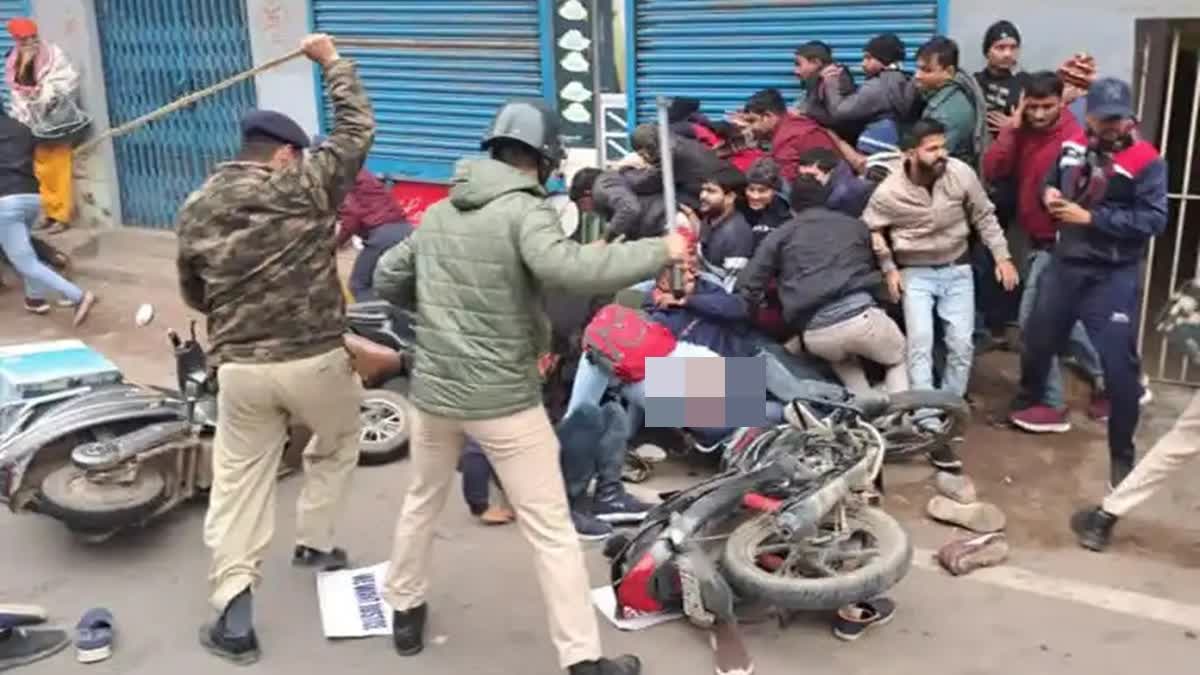Hyderabad: March 15th marks International Day Against Police Brutality. All around the world, unlawful use of force by police is the cause of death, injury, and devastation. Oftentimes, these acts of violence are fueled by discrimination. IDAPB is the occasion to show solidarity to one another and know your rights, because there are strict international laws and standards that govern how police can use force.
The commemoration started in 1997 as a way to protest against the most common form of misconduct and violence among police forces. Unfortunately, these events happen every day, resulting in increased insecurity among communities and human rights violations.
What is police brutality?
Police brutality refers to the unnecessary use of force by a police officer. The use of such tools as pepper spray, batons, and teasers, as well as hitting, choking, throwing a non-combatant civilian to the ground, and sexual abuse are all examples of physical police brutality. It can be a physical as well as verbal abuse or racial profiling and false arrest.
Police Brutality in India
In an extraordinary rebuke over police brutality, the then Chief Justice of India, Justice NV Ramana in August 2021 said the most dangerous places in the country for threats to human rights are police stations.Justice Ramana said that rather than being the safest places, “the threat to human rights and bodily integrity are the highest in police stations”.
“Custodial torture and other police atrocities are problems which still prevail in our society,” he told the National Legal Services Authority in a speech in Delhi in 2021. He added that the poor bore the brunt of police brutality, but “going by recent reports, even the privileged are not spared from third-degree treatment”.
Fake encounters
Between 2000 and 2017, the NHRC registered 1,782 fake encounter cases. Similarly, between 1993 and 2009, at least 2,560 cases of encounters were brought to the notice of the NHRC. Of them, 1,224 were fake.
Custodial deaths
According to the government’s own data, the number of custodial deaths, the outcome of extreme forms of torture, has risen sharply from 100 in 2020-21 to 175 in 2021-22. And despite the Supreme Court’s orders to install CCTV cameras in 13 places inside every police station only a handful of states/UTs have partially complied.
According to Unbias the News, "India recorded over 4,400 custodial deaths between 2020 and 2022. Uttar Pradesh alone accounted for over 21 percent of the deaths, raising questions about the prevalence of gross human rights violations in the country’s most populous state."
Why Police Brutality and Torture Are Endemic in India
Mechanics of desensitization: It is difficult to find a cop who is ashamed of what he does in his job or feels conflicted. Those who survive in the job manage to get effectively desensitized or dehumanized unless, in rare instances, they choose to chart their own path, at their own peril.
Peer pressure of being a macho cop: Many people find it paradoxical that police brutality continues be an integral part of policing in India, in spite of the fact that the Indian police has, in 41 years of the IP and 73 years of the IPS, been headed by highly educated people, selected through one of the toughest exams in the world.
The reason is that torture has been accepted as a ‘macho’ or the expedient way of dealing with things, which cannot be dealt with by the legal and ‘effeminate’ way of policing.
Statements made by constitutional functionaries and bureaucrats point towards the normalization of police brutality and extra-judicial killings. They also show that this has now become an unofficial policy of the State.
This piece, however, is an attempt to talk about the Constitution and the laws of India, and to remind and reinforce the principal idea that respect for human rights and the rule of law is non-negotiable in any constitutional democracy.


